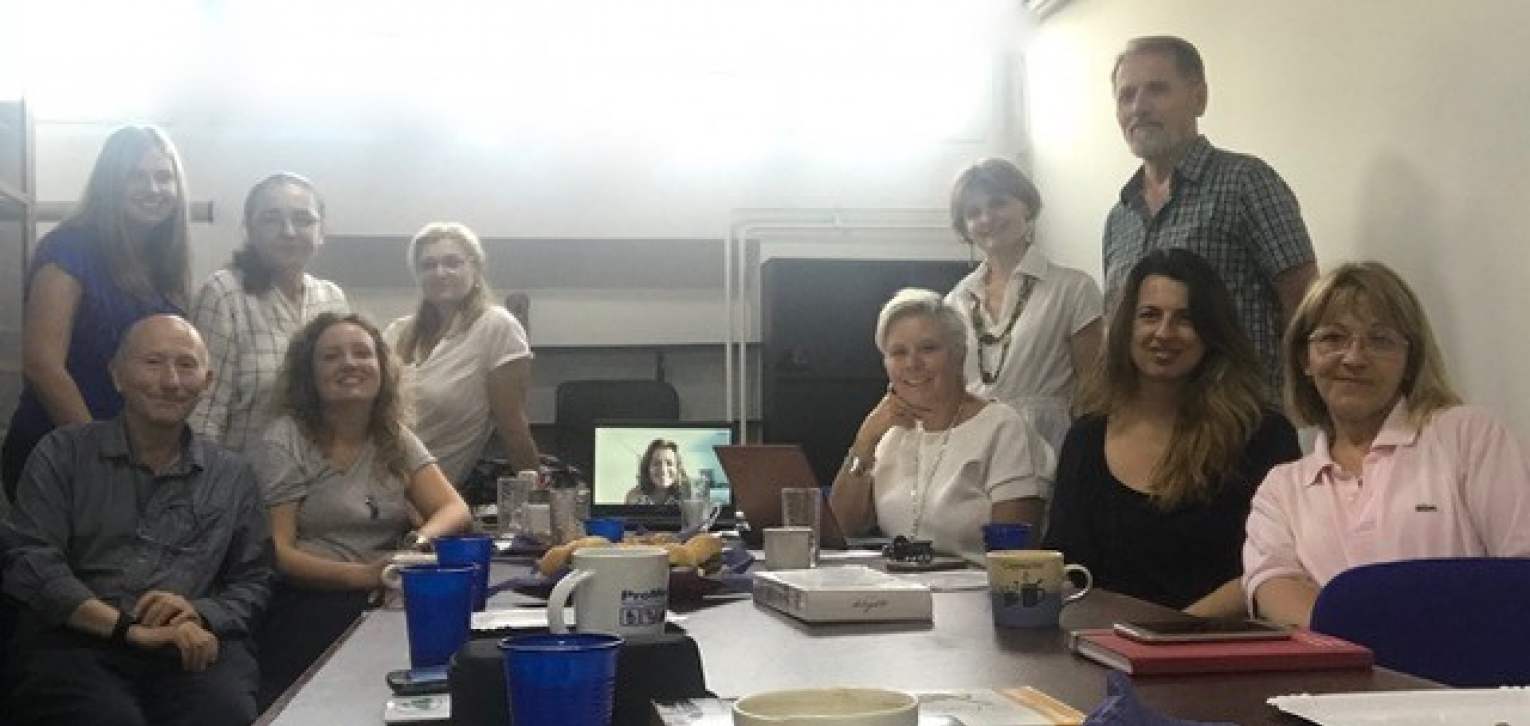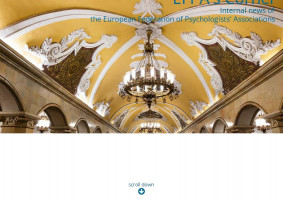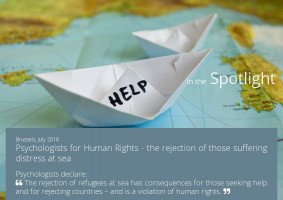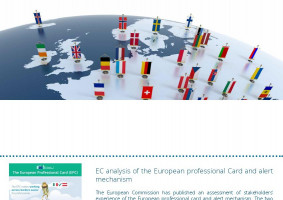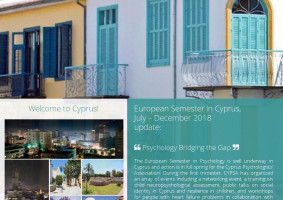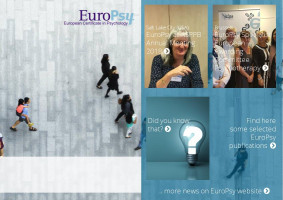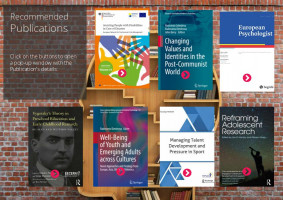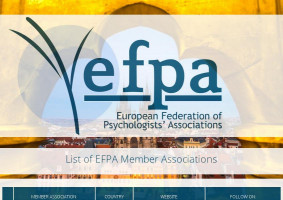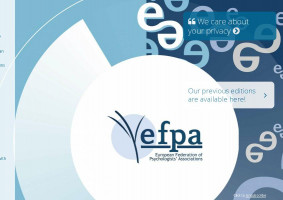Welcome to the EFPA News Magazine of October 2018.
With this magazine, we aim to stimulate the exchange of all relevant news and information among our member associations.
In this edition you will find all information regarding registration and deadlines for our EFPA congress, the 16th European Congress of Psychology, from July 2 - 5 in Moscow. Also, we highlight World Mental Health Day of October 10 and made a nice compilation for you to see how this day has been celebrated by our member associations.
News from the European front contains, among others, findings by the European Commission on the European Professional Card, the state of affairs on the proportionality test Directive and an update on the impact of Brexit. And as always, you will find miscellaneous announcements from EFPA members, associate members and EuroPsy in this magazine.
Do you follow EFPA on Facebook? Let's connect and keep each other posted! Enjoy the October edition of our news magazine.
The editorial board.
news@efpa.eu
Follow us on

ECP 2019 Moscow:
Call for abstracts
deadline December 3, 2018
Following an increase in the number of requests, the ECP 2019 Organizing Committee decided to extend the deadline for submission of abstracts for Symposium and Panel discussion from 5 November 2018 to 3 December 2018, the same deadline as for individual Oral/Poster presentation.
Notification of acceptance from the Scientific Committee remains fixed on February 4, 2019.
Important deadlines:
Submission abstracts:
December 3, 2018.
Notification of acceptance from the Scientific Committee remains fixed on February 4, 2019.
Early bird registration:
April 1, 2019.
Registration and fee:
The registration through the website is open now
Early bird registration ending April 1, 2019. The early bird registration fee for an EFPA member association delegate is € 350.
The list of the registration fees can be found here
What are the unique features of ECP 2019 which you can’t miss?
1. "Psychology: creating the future together” – is the main Congress theme talking about ways psychology can establish productive relations with other sciences, contributing to the issues of society, education, health, digital future and security. There will also be many cross-disciplinary researches presented as part of scientific program.
2. ECP2019 keynotes, more than 20 of distinguished researchers and practitioners have confirmed their attendance and presentations talking about important issues which society faces nowadays.
3. Publishing opportunities. ECP 2019 will provide opportunity to publish extended abstracts (short articles) in Web of Science and SCOPUS indexed journals, partners of ECP2019 and the Russian Psychological Society.
4. Simultaneous translation (Russian-English) will be provided for selected sessions and presentations, so the participants will be able to better understand each other.
5. It is the first time the ECP takes place in Moscow, Russia and there will be pre- and post-congress tours organized to the nearby cities including Saint Petersburg and the Golden Ring cities, including an attractive Moscow City tours.
6. Special terms of support will be arranged for ECP2019 attendees, easing up Russian visa issue procedures.
7. Registration fees. Significant discounts will be provided for EFPA member Associations Delegates and students, and the early-bird rates are available till 1 April 2019.

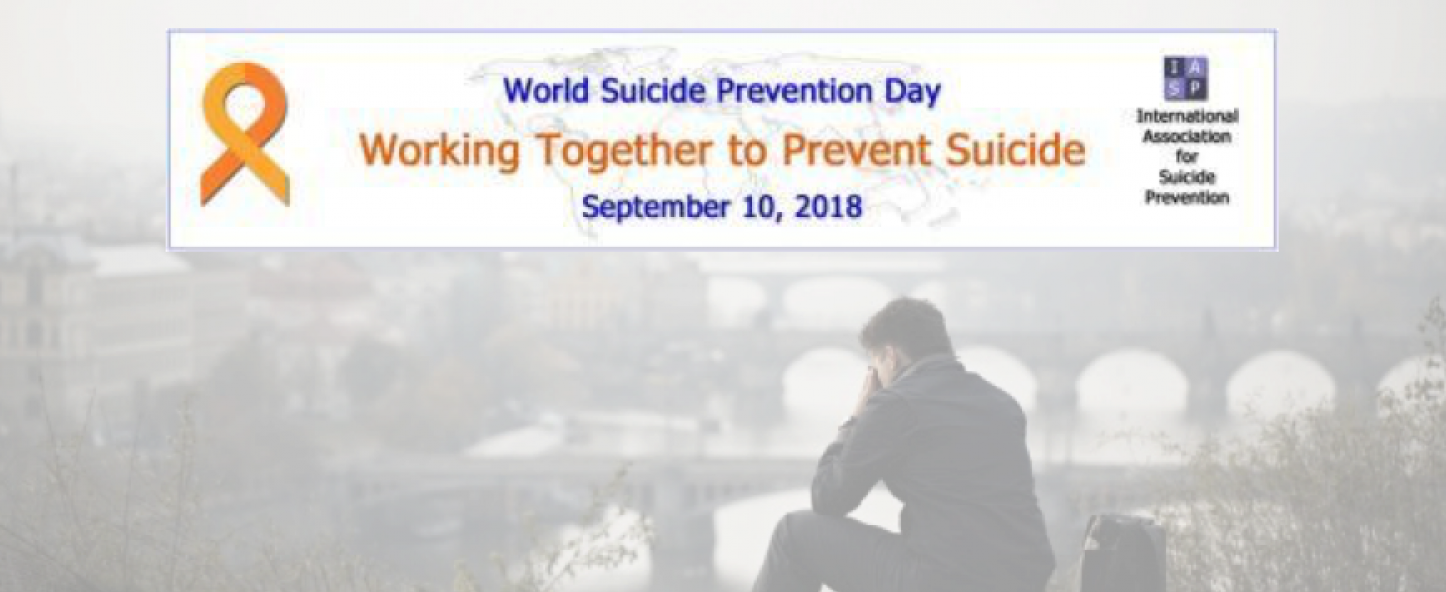
September 10: World Suicide Prevention Day - Working together to prevent suicide.
Psychologists join the efforts in working together and saving lives. As suicide is globally such an important public-health problem – more than 800,000 people die yearly, this year’s theme is 'Working together to prevent suicide."

Adolescence and the early years of adulthood are a period of life with many transitions. The young person is growing up both physically and psychologically, learning how to safely spend time away from their family with friends and partners.
This can be a time where the young person may take on new roles that are rewarding and challenging. There also can be times of great stress, sometimes leading to mental distress, maybe severe distress.
Adolescence is also a period of life where the main health problems are in general not infections nor age related, but instead are behaviours. They may be health-compromising behaviours or high-risk behaviours that can lead to serious harm, and these behaviours can sometimes even be fatal. The most serious are associated with substance misuse, poor life conditions, poor health-related quality of life and poor mental health.
In recent decades an approach to prevention has emerged, where seeking the wellbeing of all young people is the best way to deal with adolescents’ mental health problems, rather than focusing on helping one person at a time after they became unwell. This approach aims to avoid risks and keep them away from situations that could harm them.
This approach has made a dramatic change. Promotion and prevention are seen as two sides of the same coin, aiming to increase young people’s behavioural capacity to cope with life challenges with minimum harmful effects and at the same time maximising their wellbeing, self-fulfilment, and social engagement. >>
_w426_h294_1.png)
>> Life conditions in most areas of the world have been generally improving and fatalities among young people have been falling. However, they face many novel challenges:
the technological world where personal relationships online can be very different than in the real world;
they also face, along with all age groups the environmental, political and socioeconomic changes that have led to armed conflicts and humanitarian crises, forcing many families, with young members, to flee from their homes.
Psychologists have a key role in the field of prevention science.
The European Federation of Psychologists’ Associations EFPA stresses the urgent need to develop public policies that are based on firm evidence developed by researchers, including psychologists, from the field of prevention science and urges its member associations to take action in their own countries to support this.
These public policies need to be ‘adolescent friendly’ and aim to promote their personal and social competence, their social engagement and their life opportunities, so as to build strong support peer networks for young people. Psychologists have a key role in this field drawing on psychological science and practice.
Two projects led by psychologists, supporting young people Examples of programmes that aim to support young people having a good start in life and a flourishing adolescence are illustrated by work led by psychologists in Denmark and Portugal.

Spain:
La importancia de cuidar la salud mental de los jóvenes, informe de la Federación Mundial de la Salud Mental
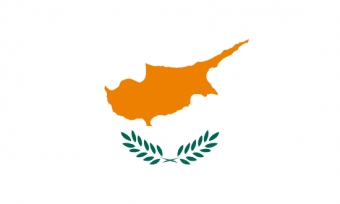
Cyprus:
Νέοι και ψυχική υγεία σε έναν μεταβαλλόμενο κόσμο

The Netherlands:
Vandaag is het Wereld Geestelijke Gezondheid Dag. Dit jaar in het teken van jongeren en mentale gezondheid in een veranderde wereld.
_w340_h184_1.png)
United Kingdom:
World Mental Health Day 2018: EFPA calls for a preventative approach to boost young people’s wellbeing

Slovenia:
Danes obeležujemo svetovni dan duševnega zdravja, ki je letos namenjen predvsem otrokom in mladostnikom ter njihovemu duševnemu zdravju v hitro spreminjajočem svetu.
_w340_h188_1.png)
Portugal:
10 anos de "abandono mental" em Portugal: Como o Programa Nacional de Saúde Mental falhou na melhoria do acesso dos portugueses às respostas na área da saúde mental e na melhoria dos indicadores nacionais.
_w340_h204_1.png)
Norway:
På samme dag Norge skrev under på en erklæring om å prioritere psykisk helse, er det trist å være vitne til utviklingstrekk som peker i en annen retning enn «raushet» - tema for Verdensdagen 10. oktober.
_w340_h200_1.png)
Ukraine:
10 жовтня 2018 року: Всесвітній день психічного здоров'я. Молодь та психічне здоров'я в мінливому світі
_w340_h154_1.png)
EFPSA:
Adolescence and the early years of adulthood are a period of life with many transitions. The young person is growing up both physically and psychologically, learning how to safely spend time away from their family with friends and partners
_w340_h186_1.png)
Turkey:
Dünya Ruh Sağlığı Federasyonunca 1992 yılında ilan edilmesinden bu yana her yıl Dünya Ruh Sağlığı Günü olarak kutlanmakta olan 10 Ekim tarihinde derneğimiz bu yıl Sosyal Hizmet Uzmanları Derneği, Türk Nöropsikiyatri Derneği ve Türkiye Psikiyatri Derneğinin katılımıyla ortak bir basın açıklamasında bulundu. >>
>> Saat 10.00'da Türkiye Psikiyatri Derneği Genel Merkezinde düzenlenen ve Sosyal Hizmet Uzmanları Derneği Genel Başkanı ile Türk Psikologlar Derneği Genel Başkanının yer aldığı basın toplantısında ortak metin Türkiye Psikiyatri Derneği adına Genel Sekreter Koray Başar tarafından okundu.
_w336_h336_1.png)
Telmo Mourinho Baptista, president of EFPA, presented a keynote in Montreal, at the 29th International Congress of Applied Psychology, under the topic 'Solving the world’s problems with the help of psychology'.
In a very well attended and participated session, Telmo Mourinho Baptista addressed some of the global problems that the world faces today such as migration, unemployment and health related to ageing. >>

>> Reviewing the Voluntary National Reports of the Sustainable Developmental Goals, he urged psychological organisations to go further than the current indicators and to develop interventions for the different goals. The need for prevention and promotion interventions was stressed. Baptista also addressed the challenges that the profession faces with developments such as artificial intelligence (AI), and concluded by stressing the need for the development of new ways of organising the current leadership.


_w1660_h612_1.jpg)
